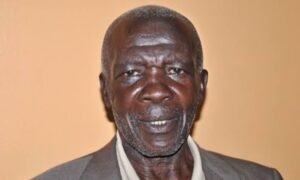What you need to know:
- This policy is essential to tackle issues such as environmental pollution, illegal use of vehicle number plates, and inefficient disposal of car parts associated with old and unused vehicles.
- Winfred Naluyinda, Assistant Commissioner of Mechanical Service Inspection at the Ministry of Works and Transport, highlighted the environmental advantages of such a policy.
Mr. Fred Muwanga, Principal of Nakawa Vocational Training Institute, has urged for the development of a comprehensive policy governing the management of end-of-life vehicles (ELVs). This policy is essential to tackle issues such as environmental pollution, illegal use of vehicle number plates, and inefficient disposal of car parts associated with old and unused vehicles.
Muwanga made these comments during the graduation ceremony of 100 trainees who received training in end-of-life vehicle (ELV) recycling technology at Nakawa Vocational Training Institute. This initiative, supported by the United Nations Industrial Development Organisation (UNIDO) and the Japanese mission to Uganda, aims to address environmental and security challenges posed by decommissioned vehicles.
“Implementing a policy will provide clear guidance and prevent misuse of vehicle number plates,” Muwanga emphasized.
The proposed policy includes measures for secure collection and destruction of number plates and registration cards from decommissioned vehicles, thus reducing the risk of criminal activities.
Eng. Winfred Naluyinda, Assistant Commissioner of Mechanical Service Inspection at the Ministry of Works and Transport, highlighted the environmental advantages of such a policy.
“We may revise legislation to better accommodate end-of-life vehicle recycling technologies, safeguarding both the environment and the interests of Ugandans,” Naluyinda suggested.
Naluyinda also emphasized that the policy should establish guidelines for safe disposal and recycling of vehicle parts, promoting reuse of viable components and responsible disposal of non-reusable parts.
Chanatsu Hosokawa, Programme Assistant at UNIDO, underscored the role of training programs in transferring advanced recycling technologies to Uganda.
“Graduates should have opportunities to collaborate with the government and receive recognition for implementing these technologies,” Hosokawa proposed.
Tomotaka Yoshimura, Deputy Head of the Japan Mission to Uganda, expressed Japan’s pride in contributing to the initiative.
“We hope this project will establish a recycling industry in Uganda, leveraging Japanese technical expertise to reduce waste from used vehicles and promote an eco-friendly society,” Yoshimura said.
By addressing environmental, economic, and security challenges associated with old vehicles, the proposed policy aims to establish a structured and sustainable approach to vehicle disposal.

Do you have a story or an opinion to share? Email us on: info@falconposts.com Or follow the Falconposts on X Platform or WhatsApp for the latest updates.












